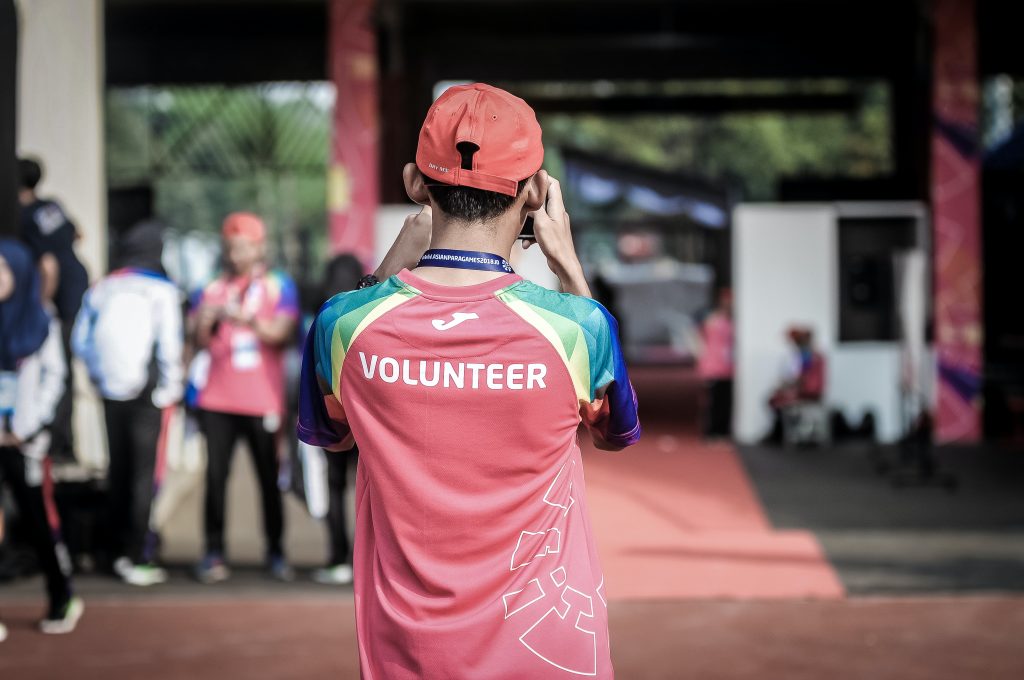
As you begin to plan your transition out of the military, consider voluntourism. Although not a new concept, voluntourism is gaining popularity.
Table of Contents
What is Voluntourism?
Essentially, voluntourism is travel that combines vacation and volunteering. Voluntourism trips are usually short-term and involve volunteer work, merged with planned excursions and time for leisure. They also typically focus more on the experience of participants. Compared to the actual impact they leave on the communities in need.
No Pre-Set Time
Voluntourism programs are typically part of a larger vacation. They will usually include small excursions or entire days/weeks of leisure. The programs are for people who want to do good abroad. And also for people who do not have the time to commit to a volunteer project. Therefore they tend to be shorter in duration.
For example, an alternative spring break. A two-week trip working at a school coupled with a safari in Kenya would be described as voluntourism.
Group Travel
More often than not, these programs will take groups of individuals on the trips. The dates are pre-set. You can sign up based on your interests.
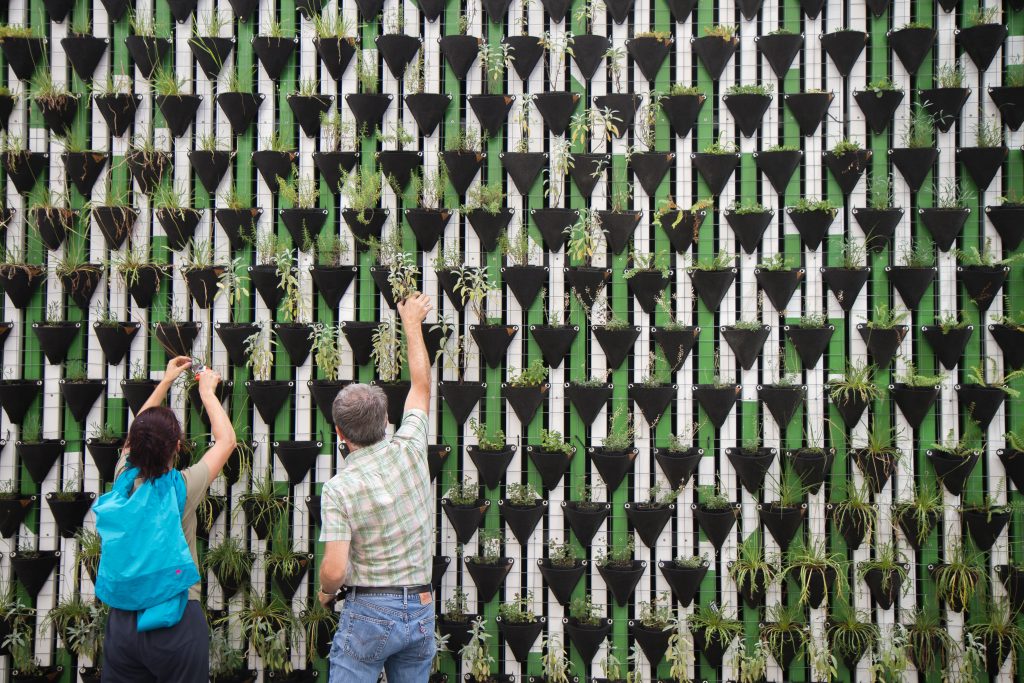
This both elevates costs of excursions and allows the participants to share the experience. It also means there is less interaction with locals. Although we do want to emphasize less interaction not none at all.
Prerequisites
Voluntourists do not require special skills . Projects range from construction work to teaching/tutoring, or working in environmental conservation. You don’t necessarily have to have a background, degree, or previous experience to participate.
Instead, you are expected to have a go-get-’em attitude and an openness to new things. Otherwise, no expertise is required in a particular field. The program will ensure that someone with the appropriate skillset is supervising the group.
Voluntourism or not, any program provider that allows you to work with children should require a background check. Prefarably also, that you’ve had experience working with children. Children are a vulnerable population. Don’t let the supposed “easiness” of working with them overshadow the potential harm. Volunteer programs can have if not done correctly and ethically.
How Did Voluntourism Start?
Voluntourism is an outgrowth of the ecotourism movement of the 1990s. According to Pippa Biddle, author of a forthcoming book on voluntourism, travellers rebelled. Mostly against package trips and resorts and wanted a more authentic experience – and they were willing to pay for it. Many charities in developing countries run such programmes and collect fees from volunteers.
“It used to be if you wanted to volunteer abroad, you wrote letters to overseas contacts,”. Claire Bennett, co-author of Learning Service: The Essential Guide to VolunteeringAbroad,” stated. Now you can buy a volunteer experience with a few clicks.” The newest trend is corporations sending employees to volunteer. It’s a team-building exercise and associates the brand with good works. Hope of Life, the Christian mission in Guatemala, has built an executive conference centre for just this purpose.
Long Time Concept
Since the mid-1800s, trains and ships made it possible for the public to travel; cheaper, faster and farther than ever before. People have strived to “voyage to less-resourced nations for pleasure and purpose,” says Biddle.
The phenomenon of volunteer tourism is now a $3 billion a year industry, says Tomazos. The funds paid by participants go to the thousands of groups that coordinate the trips. They also go along with the development programs they support.
Voluntourism seems like the perfect combination of traveling and giving back. However, it must be done right in order to have a positive effect. Good intentions only get you so far. It’s all about keeping an open mind and doing the research. This ensures that those good intentions produce sustainably beneficial results.
Responsible Volunteering
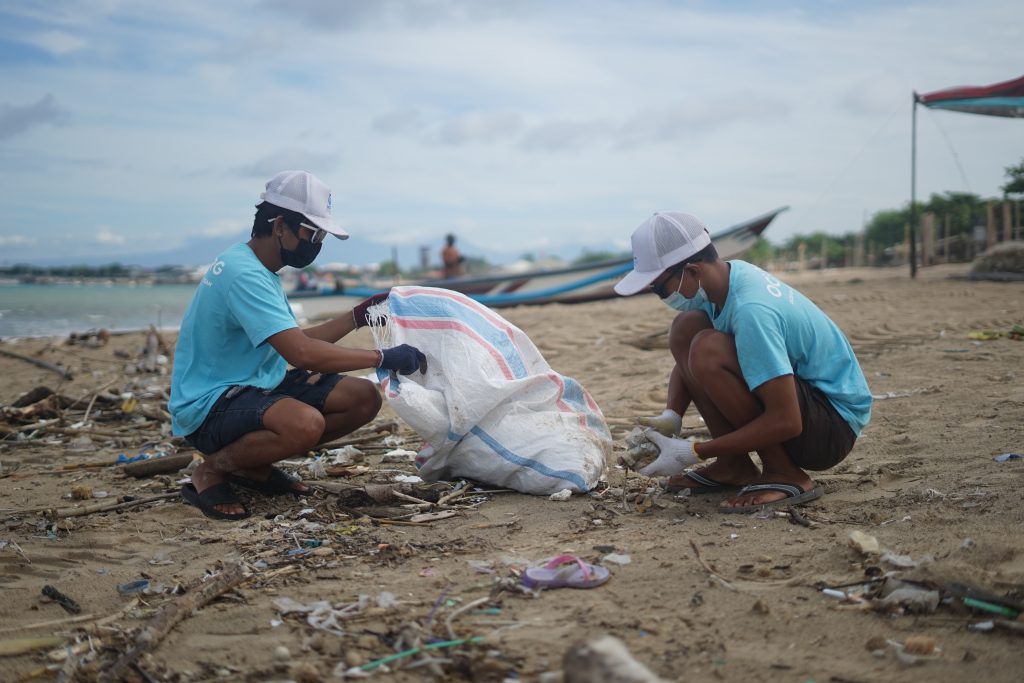
Whether you’re embarking on a voluntourism service-learning adventure or volunteer-and-travel gap year program, you should be mindful and responsible. Understand that these are real communities you’re impacting. Your intention to volunteer abroad should go way past self-growth.
You should also manage your expectations. If you’re a highly skilled professional consider volunteering abroad for a full year. The impact you make is going to be vastly different. This is compared to than that of an unexperienced voluntourist. They spends one week in a community abroad. Again, this doesn’t necessarily mean you’ll have zero impact, but you’re not saving the world either. Know what you’re in for.
And finally, be mindful of your host community and culture. Both kinds of programs can be detrimental if those in charge do not the the interests of the community in mind or are disregard the context and culture.
Data on Global Volunteering
The global estimates likely were impacted by volunteering data collected in 2020, when strict lockdowns and other containment measures were implemented across the world. In addition, statistical coverage in the Global South remains patchy but efforts are under way to systematically measure volunteer efforts in the region.
Estimates
Most volunteer work continues informally. Between individuals, with 14.3 percent of the global population participating, while 6.5 percent of working-age people worldwide engage in formal volunteering via an organization or association. A significant percentage of people carry out multiple types of volunteer work. While formal volunteers are mostly men, informal volunteers are more likely to be women.
Informal v. Formal Volunteering
While informal volunteering seems to be the main way in which volunteers intend to engage going forward, prospects for formal volunteering through government programs or other organizations are
also encouraging. As such, stakeholders in government and other organizations ought to innovate ways to better harness volunteers’ time and talents and their potential to take on ongoing challenges in communities.
In terms of trends, the decline in volunteer engagement in civic participation during the pandemic points to the need to explore the opportunities available. Efforts made to boost this type of volunteer engagement are rampant. In the aftermath of the pandemic and beyond, including through online platforms.
Benefits to Volunteering Globally
Volunteers contribute to shaping and prioritizing issues that are important to them and their communities. By aligning their priorities with those of their governments, volunteers contribute to outcomes that are relevant and responsive to the needs of communities. With volunteers’ desire or better governance and commitment to inclusion and participation, volunteerism can help build a culture of participatory and collaborative decision-making.
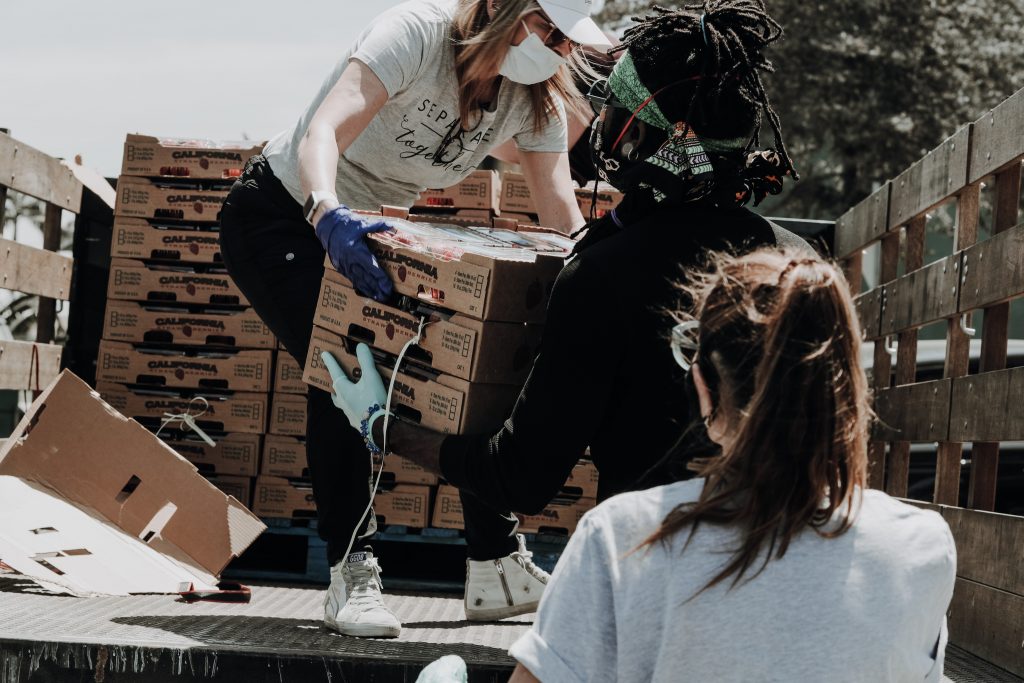
Civic Participation
Faced with complex issues, volunteers find diverse causes to engage in and various channels for volunteering. While the diverse paths to volunteering are laudable, participation remains unequal, with limited volunteering opportunities for some groups. For example, women in the Global South face particular challenges. Besides juggling caregiving and domestic responsibilities which limit their aspirations and ability to volunteer, many women engage in volunteering as a form of “service” and
less in initiatives that involve prioritizing issues, highlighting ongoing gender gaps in volunteering.
Ambassadors
Volunteers are often in the unique position of brokering relationship; between service providers and beneficiaries. A connection that is sometimes weakened by administrative issues and differing priorities. As such, volunteers act as mediators between marginalized groups and state authorities, often helping navigate bureaucratic processes.
Pandemic Proof
spontaneous, people-to-people volunteering has endured.16 Communities have continued to respond to the crisis in significant ways, despite limited mobility and resources. From fund-raising and distribution of
food packages for daily wage workers in major cities in India,17 youth-led radio-based COVID-19 awareness programmes in Tanzania18 and refugee UN Volunteers joining the medical workforce in Jordan,19 to community pantries in the Philippines,20 community soup kitchens in Colombia,21 and driving local doctors to home visits in the Russian Federation,22 volunteer responses are often local and carried out by people who themselves are facing similar constraints to the people they are “serving”.
Increased Need
Some volunteer groups changed their approach as the crisis evolved. Volunteers usually involved in campaigning; reverted to more “traditional” volunteering activities. For example, providing services to meet the basic needs of their immediate community. How these shifts might affect the ability of volunteering to contribute to more inclusive state–society relationships, remains to be seen.
Volunteer Organizations
UN Volunteers
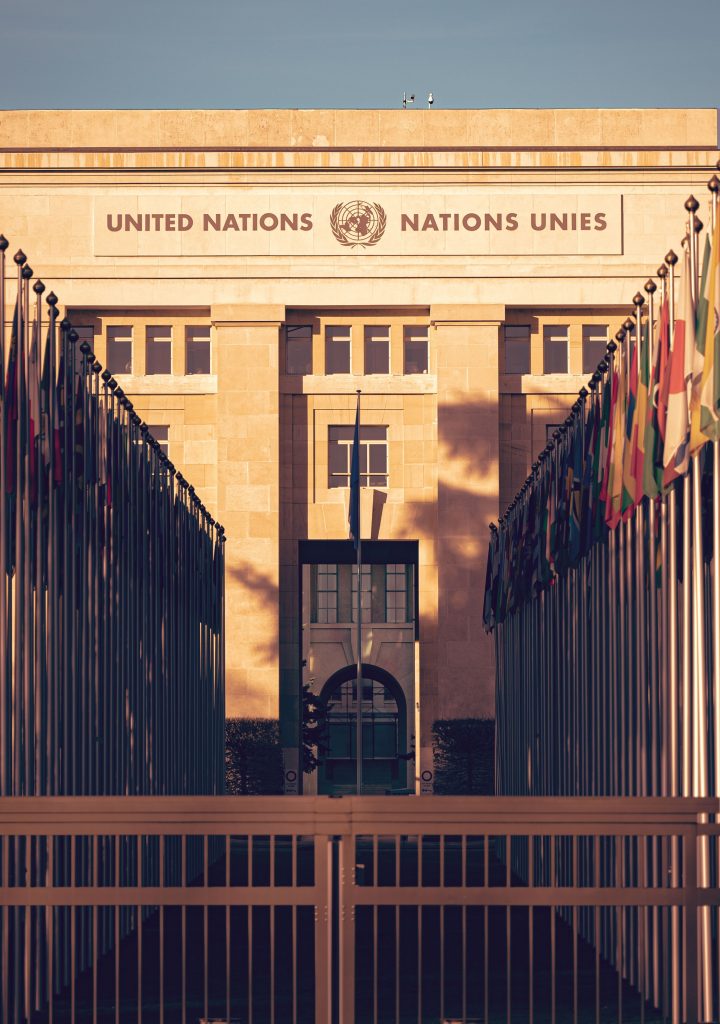
The United Nations Volunteers (UNV) programme has evolved greatly over the past 50 years in terms of the size and spread of its mandate, results and activities, driven by the changing external environment for peace, development and the eradication of poverty, by the wider acknowledgment of the role of volunteerism globally and by intergovernmental legislation.
In 2006, the UNDP/UNFPA/UNOPS Executive Board confirmed UNV’s business model, leading to UNV being operational in three domains:
- mobilizing volunteers to enable more people to be directly involved in humanitarian, peace building and postconflict recovery, as well as sustainable development and poverty eradication work of the UN;
- advocating for volunteerism and civic engagement in peace and development; and
- pursuing the integration of volunteerism across policy, legislation and programming as well as delivering on internationally agreed development goals.
UNV Global Mandate
United Nations Volunteers enjoys a unique global mandate to promote volunteerism for development, and has done so since 1970. UNV champions environments in which volunteerism can flourish. It pushes for the ability and right of people to participate in their own development. By integrating volunteers into the objectives and activities of partner organizations, local and national ownership of growth and transformation processes is fortified.
Every day, millions of individuals across the planet engage in development initiatives through volunteer actions – both large and small – in order to improve conditions for others and for themselves, their families and communities. Individual and collective action has a major impact on peace and development. Volunteer action was pivotal to achieving the Millennium Development Goals and will be even more decisive for the Impact 2030 agenda and its Sustainable Development Goals (SDGs).
GVI
We offer an extensive range of social development programs through which people from all walks of life can volunteer, intern and study. Our programs are led by our partners who are local to the communities we’re based in, and focused on making an ethical, data-driven, sustainable impact. With GVI, you get access to real-life practical experience to kick-off or advance your career. We also offer nature conservation programs where we focus on preserving the environment and protecting wildlife.
We know it’s important to you to create lifelong connections with like-minded global citizens who share your values. That’s why we invite you to enjoy meaningful exchanges based around language, music, cooking and cultural.
History of GVI
Richard Walton knew he wanted to do something meaningful with his life. So when he turned 18, he left the comfort of his home in the UK and headed off to a Patagonian village to volunteer. Although he had a great experience, he couldn’t stop thinking about the questions that stirred inside him. Why is the local community not involved? Will it really have a sustainable impact in the long run?
Experiences Abroad
A few years later, Richard moved to an island in the middle of Lake Malawi, once again disturbed to see how detached travellers were from the challenges that the community was facing.He couldn’t shake the feeling. He knew there must be a better way to run volunteering programs that were more ethical and impactful.
A vision was born. Richard was inspired and created programs that would enable global change-makers to work alongside local organisations by supporting and contributing to their initiatives, instead of doing their own thing.
Partnership
Together with his college friend Ben Greig, a passionate biologist, they got to work. They set up local partnerships in Honduras and launched the first ever GVI marine conservation program in 1997, with 21 participants. And with that GVI was officially born. Through decades of hard work by a dedicated team of experts, we’ve established more than 600 partnerships and have welcomed over 35,000 participants so far.
GVI is continuously adapting and evolving to ensure that we serve our participants and partners as best as possible. And in an effort to be more intentional and impactful through programs, GVI recently split into two focused offerings. GVI Planet, specializing in nature conservation, and GVI People, specialising in community development.
Habitat for Humanity
If you’ve been looking for an exciting opportunity to live in another country; then consider volunteering your professional skill set with Habitat in one of the countries where we build. For durations of three to 12 months or more. International Habitat offices are looking for reliable, dedicated volunteers; to help advance their mission to provide safe, affordable housing around the world.
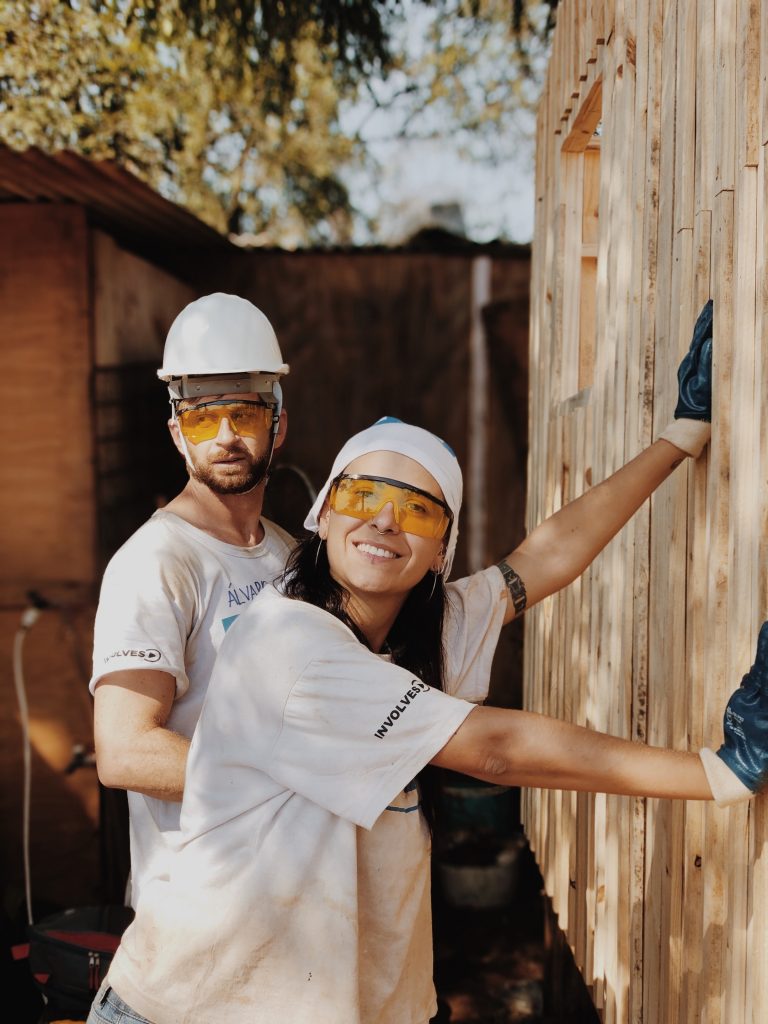
Opportunities
There are opportunities for volunteers to utilize their construction skills as a builder, site assistant or foreman. However, they are also looking for volunteers who want to apply their unique business skills to office positions. Examples are such as social media advisor, grant writer, volunteer coordinator. Global Village assistant, research assistant, communications specialist, program or resource development specialist, as well as other administrative roles.
We need excited people like you who are willing to do the challenging work of improving and strengthening communities. Poor housing conditions are a worldwide problem. It takes the devotion and commitment of many volunteers to create lasting solutions. Ready to join ? Search for international volunteer opportunities.
Doctors Without Borders
Doctors Without Borders/Médecins Sans Frontières (MSF) was founded in 1971 in France. It started with a group of doctors and journalists in the wake of war and famine in Biafra, Nigeria. Their aim was to establish an independent organization that focused on delivering emergency medical humanitarian aid quickly, effectively, and impartially.
Three hundred volunteers made up the organization; when founded. This included doctors, nurses, logistics experts, and other staff, including the 13 founding members. MSF was established on the belief that all people should have access to high quality health care; regardless of gender, race, religion, creed, or political affiliation. From the start, teams made a commitment not just to care for patients; but to bear witness to their experiences and speak out to call attention to the problems driving emergency needs.
Growth
Over the past five decades, MSF has grown from a group of a few hundred volunteers to an international movement. It is more than 63,000 staff providing over 10 million medical consultations in more than 70 countries every year. But the core values of humanitarianism, independence, neutrality, and impartiality; that brought those original members together in 1971 continue to drive our work.

Peace Corps
The Peace Corps is an independent agency and program of the United States government. It trains and deploys volunteers to provide international development assistance. It was established in March 1961 by an executive order of President John F. Kennedy and authorized by Congress the following September by the Peace Corps Act.
Kennedy first publicly proposed the Peace Corps during his 1960 presidential campaign. This was a means to improve America’s global image and leadership in the Cold War. He cited the Soviet Union’s deployment of skilled citizens “abroad in the service of world communism”. He argued the U.S. must do the same to advance values such as democracy and liberty. The Peace Corps was formally established within three months of Kennedy’s presidency. Garnering both bipartisan congressional support and popular support, particularly among recent university graduates.
Mission
The official goal of the Peace Corps is to assist developing countries. Skilled workers contribute in fields such as education, health, entrepreneurship, women’s empowerment, and community development. Volunteers are American citizens. Typically with a college degree, who are assigned to specific projects in certain countries based on their qualifications and experience; they often work with other stakeholders, governments, schools, non-profit organizations, non-governmental organizations, and entrepreneurs.
Following three months of technical trainin; Peace Corps members serve at least two years in the host country. After which they may request an extension of service. Volunteers are strongly encouraged to respect local customs, learn the prevailing language, and live in comparable conditions.
In addition to its technical mission, the Peace Corps is intended to promote mutual understanding between Americans and foreign peoples. By extension improve the international standing of the U.S.
Transition From Military Life

Terminal leave, also known as transitional or accumulated leave. You are granted away from service just prior to discharge. The amount of terminal leave you receive is equal to the total amount of unused leave accumulated during active service. Terminal leave enables service members to receive regular pay and military benefits; without the need to report back to the duty station.
In fact, military personnel complete out-processing and turn in gear prior to departing for transitional leave. There are different strategies as to how you should use your leave (if, at all). Some troops elect to save the maximum allotment for terminal leave for a smoother transition back into civilian life. Meanwhile, others attempt to financially capitalize on their accrued hours. This is done by selling them back to the Department of Defense for extra cash.
Calculating Leave
If you are interested in transitioning from the military and volunteering; make sure you calculate your leave correctly. Transitional leave accrues just like any other type of paid leave. Therefore, service members earn 2 1/2 days of leave per month. When you do the math that is 30 days of leave for a year of service.
As a result, you can calculate terminal leave to determine how many hours you have remaining. Furthermore, this will allow you to calculate how much money you’ll receive for selling terminal leave back to the military. Currently, the value of terminal leave is at 1/30th of base pay per day you have accrued. It’s also important to note that taxes (25% for federal) are withheld on the final payment.
Use Leave to Your Advantage
If you decide to keep your terminal leave then make sure to take advantage of it prior to ETS. Service members are generally free to use their leave at any point during service. Regardless, storing 1-2 months of leave for the end of service makes the transition back into civilian life smoother.
Thus, maintain the notion that terminal leave is for finishing projects (and preparing for new ones) not ignoring them. Using terminal leave allows you to still take advantage of military benefits. As a result, you can still earn basic pay and receive full benefits; while hunting for a new job and home. All service members value transition leave.
